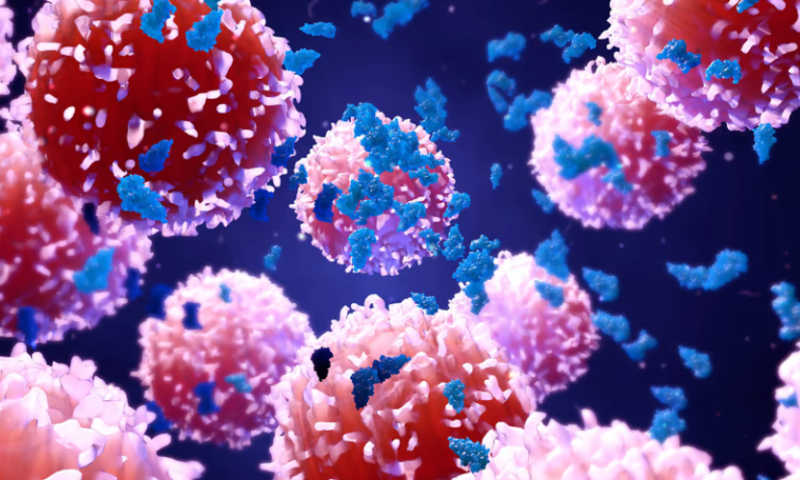Early phase 2 data of I-Mab’s antibody coupled with Junshi Biosciences’ immuno-oncology drug shows it performed best among untreated patients, and a biomarker may help identify the ideal patient pool.
Results from the China-based trial, which tests I-Mab’s CD73 antibody uliledlimab alongside Junshi’s PD-1 inhibitor toripalimab, were released Thursday at the American Society of Clinical Oncology annual conference. The combination originates from a 2019 partnership between the companies to test the two meds in China.
Among 19 non-small cell lung cancer (NSCLC) patients ineligible for the standard of care, five reported a partial response and nine showed stable disease. Two other cohorts, which included NSCLC patients who had been heavily pretreated, “showed a lower clinical response.”
Among the 19 first-line patients that the data are based on, I-Mab President Andrew Zhu said in an interview with Fierce Biotech, “there is definitely a very strong signal suggesting the correlation of baseline high CD73 expression with clinical responses.”
As a result, Zhu hopes to expand the first-line cohort to “build the confidence of our data” as the company looks to validate the results. He also wants to further assess the potential of using CD73 expression as a biomarker and to develop a companion diagnostic.
Besides NSCLC, the company is testing the combo therapy in a phase 2 trial as a second-line treatment for other solid tumors including head and neck cancer, gastric cancer and carcinoma.
Next up for I-Mab’s development plan is to move the combo into a phase 3 NSCLC trial in China next year. The company also hopes to launch a U.S.-based NSCLC trial within the next 12 months. The intention is for these trials to implement a more specific clinical patient pool based on the data presented Thursday.
Alongside I-Mab advancing uliledlimab into additional trials, the company’s business development gears are also in motion. “At this moment, we already initiated the discussions and negotiations with several potential partners and we’re seeking the most resourceful partner so that we can really speed up this development program,” he said.
In 2020, the company nailed down a deal that gives AbbVie ex-China commercial rights for its CD47 antibody, lemzoparlimab, in an agreement that could be worth up to almost $2 billion. Zhu said he hopes to execute a similar deal for access to uliledlimab, adding that negotiations are well underway.
Uliledlimab is the latest immuno-oncology product in I-Mab’s pipeline, which also includes two monoclonal antibodies targeting CD38 or CD47. Uliledlimab is designed to block the CD73 enzyme from producing adenosine, which can suppress the body’s immune response to cancer. Zhu described CD73 as the “rate-limiting step” in adenosine production, because blocking CD73 may actually be the best target for reducing adenosine. Paired with a checkpoint inhibitor, the company hopes the clinical benefit will stand out.

